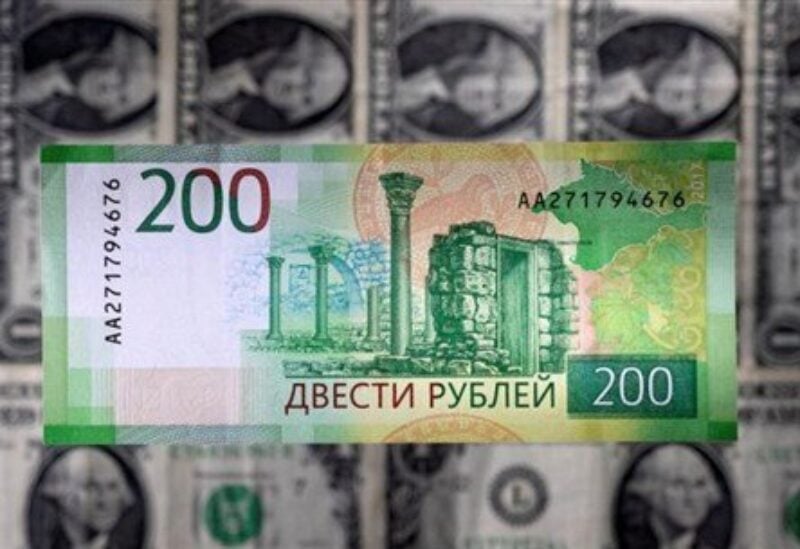
Russian ruble
In bright sunshine, a long queue of shoppers snaked outside an IKEA store near Moscow this week. Similar scenes were repeated across Russia as families rushed to spend their fast-depreciating roubles at the Swedish retailer which is exiting the crisis-hit country.
Russians are bracing for an uncertain future of spiraling inflation, economic hardship and an even sharper squeeze on imported goods.
The rouble has lost a third of its value this week after unprecedented Western sanctions were imposed to punish Russia for invading Ukraine. The moves froze much of the central bank’s $640 billion in reserves and barred several banks from global payments system SWIFT, leaving the rouble in free-fall.
Cities across Russia were outwardly calm, with little sign of the crisis devastating financial sector and markets. Except for the lines of people looking to stock up on products – mostly high-end items and hardware – before shelves empty or prices climb further.
“The purchases that I planned to make in April, I urgently bought today. A friend from Voronezh also told me to buy for her,” shopper Viktoriya Voloshina told Reuters in Rostov, a town 217 kilometers (135 miles) from Moscow.
Voloshina said she was looking for office shelves and tables and also shopping on behalf of a friend from another town. “My heart is breaking,” she added.
Dmitry, another Moscow resident, lamented rapid price rises.
“The watch I wanted to buy now costs around 100,000 rubles, compared to 40,000 around a week ago,” he said, declining to give his surname.
But the spending burst visible this week may peter out.
While there is no palpable sign of panic, the wipe-out of rouble savings and the doubling of interest rates to 20% will squeeze mortgage holders and consumers.
Financial conditions — reflecting availability of credit in the economy — have tightened brutally this year, which Oxford Economics predicted would shrink domestic demand by 11% by year end and raise unemployment by 1.9 percentage points in 2023.
Zach Witlin, an analyst at Eurasia Group, notes sanctions are already hitting consumers via prices hikes and digital payments disruptions.
While consumers are not directly targeted, “fear and caution are exaggerating the impact,” with the exit of foreign brands such as IKEA creating a “snowball effect,” he added.